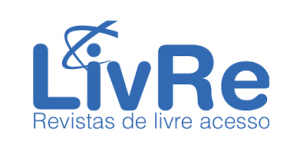PONTOS CONTROVERSOS NA APLICAÇÃO DO IRDR
Abstract
Among the numerous innovations of the 2015 Code of Civil Procedure, the brazilian procedure for repetitive claims, the IRDR, provided for in art. 976 et seq. of the aforementioned Code. The innovative mechanism in the national system was inspired by foreign mechanisms, having as its main objective to contingency the repetitive demands that plague the judiciary, by setting a binding thesis that will be applied to all processes with the same repetitive issue affected by the procedure, within the jurisdiction territory of the court that judged it and established the IRDR thesis. Divergences and controversies hover over the institute even before the approval of the code, some of which have been improved and developed in practical application before the courts. The present work demonstrates an overview of the application of the IRDR, addressing the main controversial points related to the topic, such as which judgment technique should be applied to the pilot cause or model procedure, the hypotheses and assumptions of appropriateness, suspension and suspension of the processes, the possibility of distinction, the national expansion of the suspension, the granting of provisional protection, the modulation of the suspension effect and the appropriate resources in light of empirical data, doctrine and jurisprudence.
Downloads
Published
How to Cite
Issue
Section
License
Copyright (c) 2024 A REVISTA REFLEXÃO E CRÍTICA DO DIREITO utiliza uma licença Creative Commons - Atribuição-Não Comercial BY-NC 4.0 Internacional. Os autores dos trabalhos aprovados autorizam a revista a, após a publicação, ceder seu conteúdo para reprodução em indexadores de conteúdo, bibliotecas virtuais e similares. A revista se permite o uso dos trabalhos publicados para fins não comerciais, incluindo o direito de enviar o trabalho para bases de dados de acesso público.

This work is licensed under a Creative Commons Attribution-NonCommercial 4.0 International License.
A submissão de artigos à REVISTA REFLEXÃO E CRÍTICA DO DIREITO está vinculada à licença da Creative Commons CC BY-NC 4.0 internacional. Através desta licença, o autor mantém seus direitos autorais, mas permite, para fins não comerciais, que as pessoas possam copiar e distribuir o seu trabalho, reservando os respectivos créditos, nas condições especificadas.
Ao submeter artigos à REVISTA REFLEXÃO E CRÍTICA DO DIREITO o (a) autor (a) já autoriza sua publicação, em caso de aceitação, após o devido processo de avaliação, ciente da política de acesso livre do periódico.
O autor (a) declara ciência de que serão publicadas todas as informações consignadas na submissão, incluindo nome, afiliação, titulação e endereço eletrônico.
Da mesma forma, o interessado, ao submeter o trabalho no site da revista, DECLARA QUE É AUTOR (A) DO TRABALHO, BEM COMO DO VÍNCULO DAS DEMAIS PESSOAS TAMBÉM APONTADAS COMO AUTORAS, assumindo inteira responsabilidade por tais declarações.
O periódico não cobra nenhum tipo de taxa. Todas as submissões, avaliações e publicações são gratuitas, bem como o seu acesso é aberto e também gratuíto.







